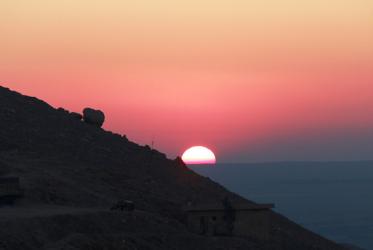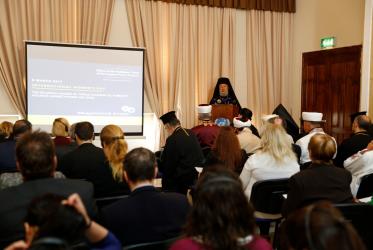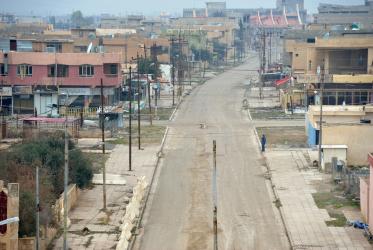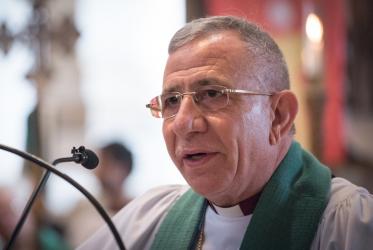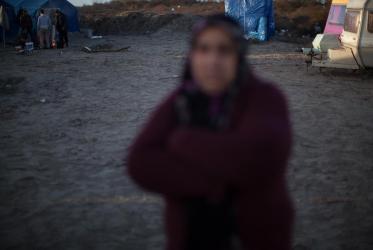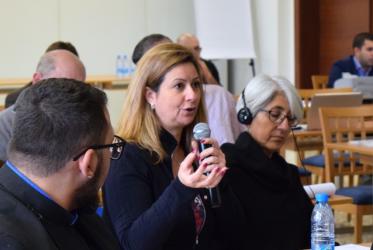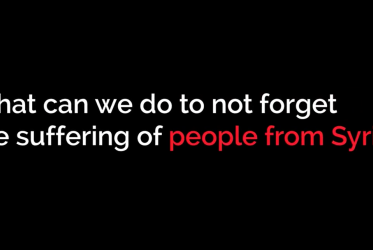Displaying 141 - 160 of 294
06 April 2017
Holy work for the Holy Land
29 March 2017
Palestinian tapestry installed at the WCC
29 March 2017
In Lebanon, refugees face hardship - but find hope
16 March 2017
USA pastors reflect on Holy Land pilgrimage
14 March 2017
WCC gravely concerned over Israel’s travel ban
09 March 2017
Bishop Younan awarded Niwano Peace Prize
22 February 2017
Strong bridges needed more than ever
21 December 2016
“There are no strangers here” – Saint Irenaeus a key to unity?
19 December 2016
‘No Christmas bells in Mosul’ for a third year, says Assyrian priest
14 December 2016
WCC general secretary mourns lost lives, calls for end to violence
11 December 2016
From Bethlehem, WCC general secretary: “Together we are stronger”
08 December 2016
WCC urges immediate focus on safety, security in Aleppo
05 December 2016
Churches’ diaconal action in the Middle East analyzed
01 December 2016
Grand Imam calls for collaboration against violence and poverty
06 October 2016
